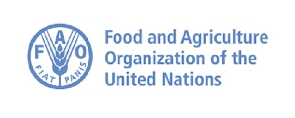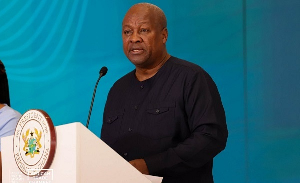The Food and Agricultural Organization(FAO), in collaboration with Friends of the Nation (FoN), has held a two-day capacity building workshop for journalists to improve on the reporting of food security issues.
The workshop was to enhance the media coverage of the management and protection of fish landing and processing sites in the face of intense pressures for land-use changes along the coast of Ghana.
It was on the theme: "Voluntary Guidelines on the Responsible Governance of Tenure (VGGT) of Land, Fisheries, and Forests in the Context of National Food Security and Poverty Eradication."
Mr Benjamin Adjei of the Food and Agriculture Organization via skype, explained to journalists that the VGGT was an international instrument to improve the governance of tenure of land, fisheries, and forests.
"They are set principles and internationally accepted standards for practices for responsible governance of tenure. VGGT is voluntary and not legally binding," he said.
He said, "the VGGT objectives are to guide and to improve the governance of tenure of land, fisheries, and forests, for national food security, to benefit people in all countries, especially the vulnerable and marginalized, to achieve food security for all, to support the progressive realization of the right to adequate food in the context of national food security.”
The Journalists, who participated, were enlightened on the fisheries sector, VGGT issues as well as fish landing site mapping and documentation.
Dr Odame Larbi, Land Tenure Officer, Food and Agricultural Organization (FAO) Sub-regional Office for Eastern Africa, Ethiopia, also via Skype, entreated journalists to continue in raising awareness of policy-makers on the guidelines and their application to the situation in Ghana.
He urged journalists to advocate to ensure the guidelines were used to improve governance of tenure.
“Ensure effective communication to stakeholders on the need to adopt the guidelines to improve governance of tenure as well as effective communication on the benefits of the guidelines for sustainable development, livelihoods, and improved governance," he said.
General News of Sunday, 16 August 2020
Source: GNA













